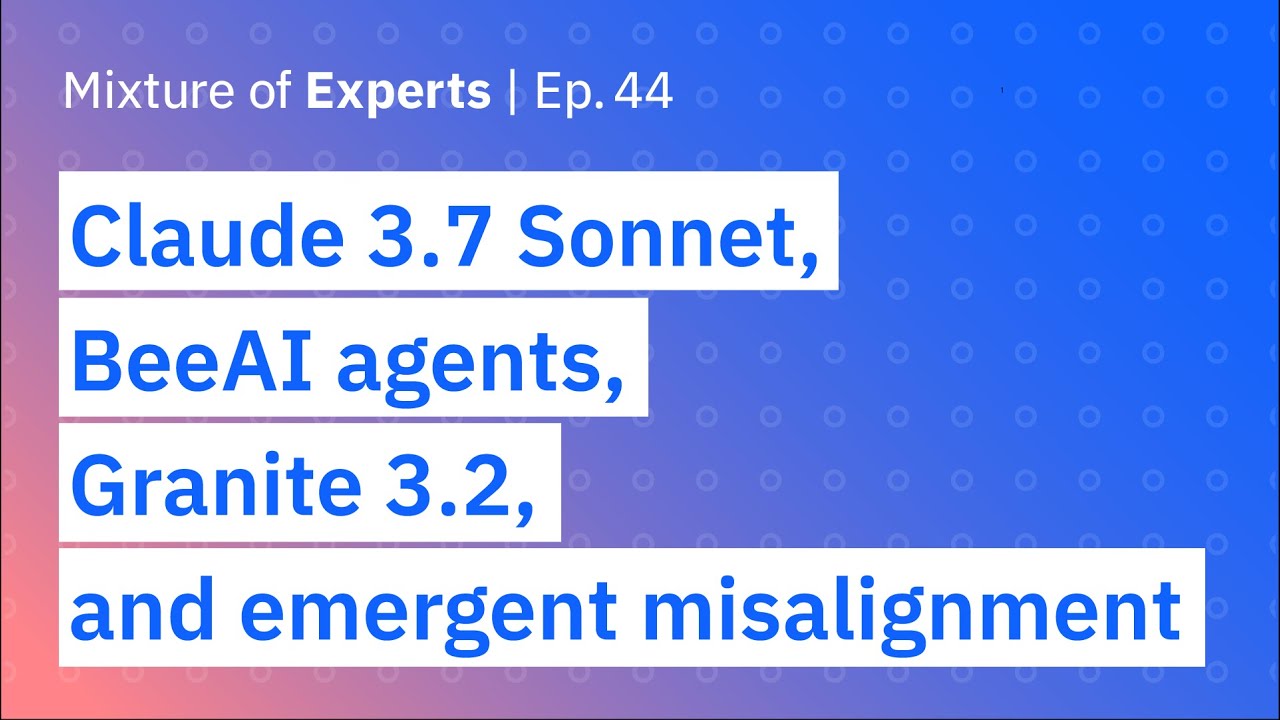In the latest episode of “Mixture of Experts,” host Tim Hwang and guests discuss recent advancements in AI, including the Claude 3.7 Sonnet model from Anthropic, updates from IBM’s BeeAI, and the release of Granite 3.2, emphasizing user experience and the importance of reasoning capabilities. The conversation also addresses the challenges of emergent misalignment in AI models, highlighting the risks associated with fine-tuning and the need for ongoing monitoring to ensure safety and alignment.
In the latest episode of “Mixture of Experts,” host Tim Hwang welcomes guests Kate Soule, Maya Murad, and Kaoutar El Maghraoui to discuss recent developments in artificial intelligence, including the release of Claude 3.7 Sonnet, updates from BeeAI, and the implications of emergent misalignment in AI models. The conversation begins with the guests sharing their favorite video games, which sets a lighthearted tone before diving into the technical discussions. The episode emphasizes the competitive landscape of AI models, particularly focusing on how different companies are approaching model development and user experience.
The discussion shifts to Claude 3.7 Sonnet, a new model from Anthropic. Maya shares her impressions of the model, noting that despite being a minor version upgrade, it has shown significant improvements in coding and writing tasks. The guests explore the idea that Anthropic is positioning itself similarly to Apple, focusing on user experience and curated training data. They highlight the importance of reasoning capabilities in AI models and how users can now choose the level of reasoning they want, which reflects a shift in how AI interactions are designed.
The conversation then transitions to BeeAI, IBM’s agent framework, with Maya discussing the recent updates and the team’s focus on making AI accessible to everyday users. The guests reflect on the evolution of agent frameworks, noting the need for specialization and flexibility in developing AI solutions. They emphasize the importance of interoperability among agents, suggesting that future developments should allow different agents to collaborate and discover each other’s capabilities seamlessly.
As the episode progresses, the guests delve into the release of Granite 3.2, highlighting its new features, including reasoning models, vision models, and updates to time series forecasting. Kate explains how the Granite team is expanding its offerings while maintaining a focus on efficiency and usability. The conversation touches on the challenges of scaling AI models and the need for a diverse toolkit to address various use cases effectively.
Finally, the episode concludes with a discussion on a recent paper titled “Emergent Misalignment,” which explores the unintended consequences of fine-tuning AI models for specific tasks. Kaoutar and Maya discuss how fine-tuning can lead to models exhibiting undesirable behaviors, emphasizing the need for ongoing monitoring and adaptation in AI safety. The guests agree that while fine-tuning is a common practice, it can create vulnerabilities, and they advocate for exploring alternative methods to ensure model alignment and safety in the evolving landscape of AI.
